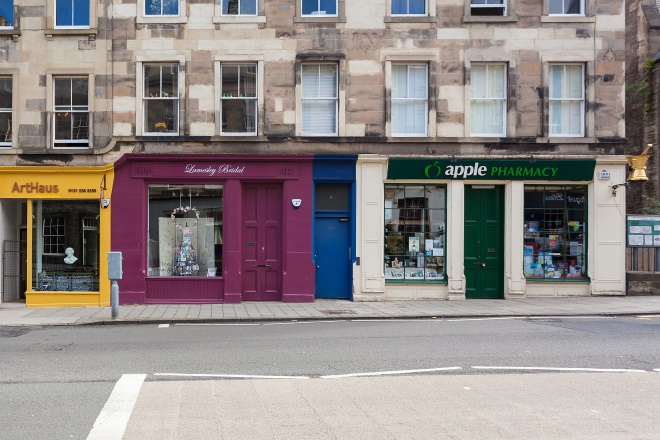
Shutterstock.com
Open access article
The Royal Pharmaceutical Society has made this feature article free to access in order to help healthcare professionals stay informed about an issue of national importance.
To learn more about coronavirus, please visit: https://www.rpharms.com/resources/pharmacy-guides/wuhan-novel-coronavirus

Source: Shutterstock.com
A spokesperson for the National Pharmacy Association said the COVID-19 pandemic could worsen existing cash flow problems in small community pharmacies
Community pharmacies that are forced to close as a result of the COVID-19 pandemic “may not open again”, Simon Dukes, chief executive of the Pharmaceutical Services Negotiating Committee (PSNC) has warned.
In a statement released by the PSNC on 16 March 2020, Dukes said that while the pharmacy sector’s response to the COVID-19 outbreak has been “impressive”, many community pharmacies that were “on their knees financially” before the outbreak, were now “teetering on the brink of collapse”.
“I am genuinely concerned that we will see COVID-19-related pharmacy closures and those businesses will not have the funds to open again, thus reducing the network of pharmacies on the high street just at the time when they are needed most,” he said in the statement.
“Community pharmacies are on the front line and are experiencing notable increases in the number of walk-ins and phone calls, numerous enquiries for delivery services, substantial price rises for common medicines, and increasing levels of staff sickness.
“The sector needs urgent investment now just to keep the doors open and ensure that the vital services of dispensing and guidance/reassurance to patients and the treatment of minor ailments continues.”
A spokesperson for the National Pharmacy Association said the organisation was asking the government to bring forward some payments as part of a series of urgent contingency measures to help mitigate against the impact of COVID-19 on pharmacy businesses.
“Even short periods of closure can have a significant effect on pharmacy finances when profitability is at a low level, as is the case now for many pharmacies after years of underfunding,” they said.
“Many pharmacies are small businesses with existing cash flow problems. Coronavirus could exacerbate this situation, so an NHS scheme may be necessary to bring forward payments to pharmacy businesses and cover shortfalls.”
Speaking to BBC Radio 4’s Today programme on 16 March 2020, Dukes also warned that the delivery of medicines to patients who may be self-isolating during the pandemic was “a real issue”.
“There is no NHS medicines delivery service, if you have your medicines delivered it’s either because you pay for it as the patient or because the pharmacy is doing it for free.
“If we need medicines delivered, we need to see government funding.”
And in a statement, pharmacy support firm Numark, said COVID-19 was worsening an existing funding crisis for community pharmacy.
“The additional requirements are not insignificant; manage redeployment of staff dealing with potentially infected patients, equip with a patient support pack, review incident management and business continuity plans, fund the necessary requirements of decontamination, prepare and publish patient facing communication – the task list continues,” the statement said.
“If a pharmacy has to decontaminate, it’s strongly advised to temporarily close during that process. If a key member of staff becomes infected, some pharmacies may even have to close, causing further suffering.
“We must not underestimate the impact of this. The additional costs of business could be significant and ultimately could be the death knell for some community pharmacies already on their knees as a result of continued and consistent funding pressures.”


